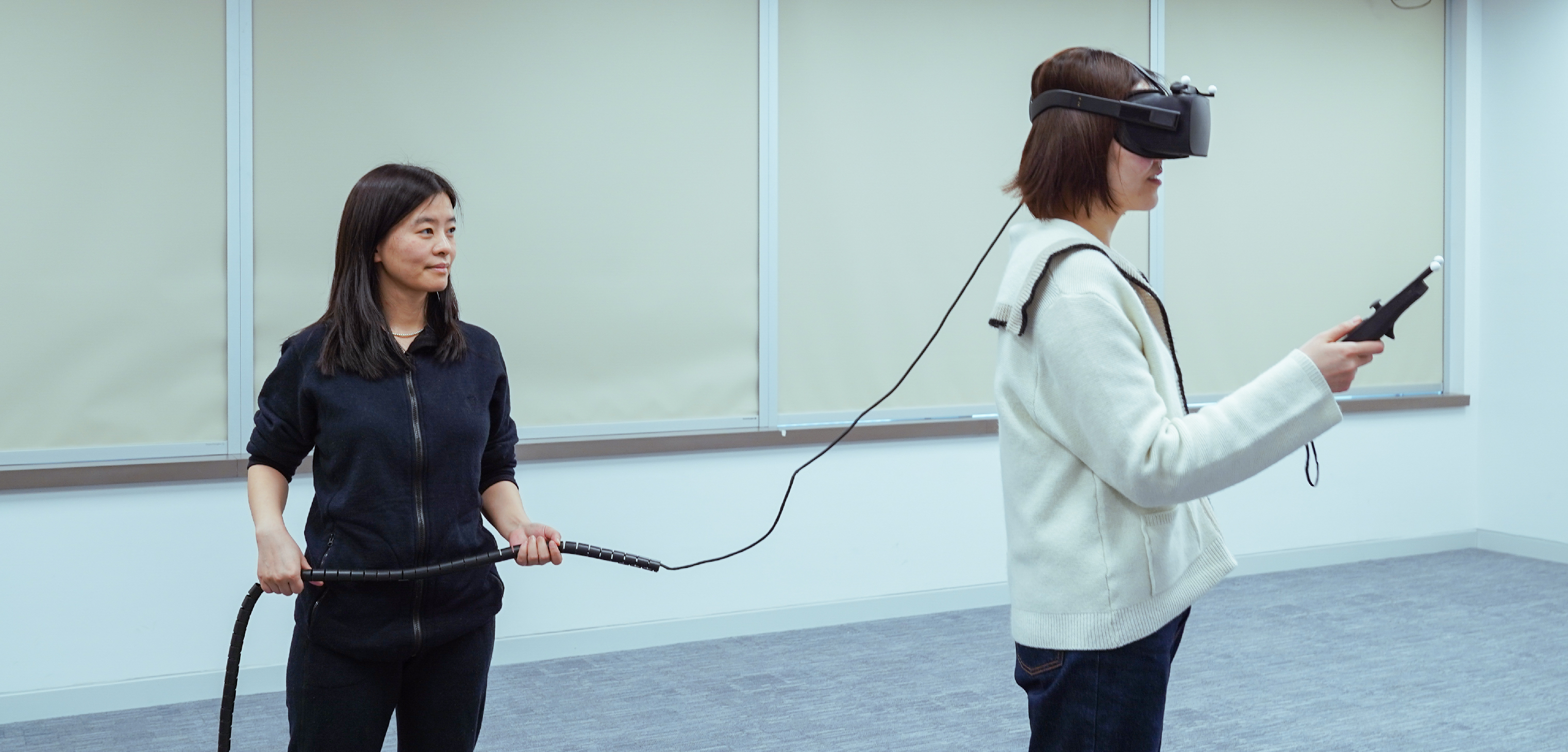
Dr. Chen Jing became a Postdoctoral Fellow at NYU Shanghai in 2016, working under the guidance of Professor of Neural Science and Psychology Li Li in the Perception and Action Lab. With her keen interest in human perception and control of self-motion, visuomotor control, and virtual reality, Chen conducts research on both healthy adults and patients with neurodegenerative disorders, specifically those with Parkinson's disease.
Could you share with us what sparked your interest in visuomotor control, virtual reality, and Parkinson's disease and how they are interconnected?
I am fascinated by how people use visual information to control their movements in everyday life, whether it's walking, driving, or playing sports. Control of self-motion is essential for our survival and is closely tied to our quality of life. During self-motion control, one typically needs to coordinate multiple effector systems to achieve stable and effective movement. Visuomotor control is a critical aspect of this, in which visual information is used to guide the movement of the eyes, limbs, body, or other effectors. For example, when driving a car, we use our eyes to track the movements of other vehicles and pedestrians, while simultaneously using our hand to manipulate the steering wheel to maintain the car's position within the lane.
To better understand self-motion control and visuomotor control, we use virtual reality (VR) as a research tool. Traditionally, studies on movement control were conducted in a laboratory setting using computer simulations that often felt abstract and disconnected from real life. However, VR technology allows us to create more immersive environments that closely mimic real-world situations. This not only enhances the effectiveness of our study of self-motion control and visuomotor control, but also enables us to explore the contributions of different sensory cues, such as vision, vestibular, and proprioceptive information, to self-motion control. VR allows us to selectively manipulate or remove these cues in order to assess their relative importance.

Chen performing experiment at the VR walking lab
To generate a comprehensive understanding of the development of visuomotor control, it is essential to study three distinct groups: children, healthy adults, and elderly individuals who develop brain diseases later in life, such as Parkinson's disease. Children offer a unique perspective on how visuomotor abilities develop, while healthy adults serve as an important reference point for normal visuomotor functioning. Studying patients with Parkinson's disease, which affects visuomotor control, is especially valuable, as it can provide important insights into how the brain controls movement and what happens when the brain gets older.
Overall, my research aims to shed light on how we control our movements and how this process is impacted by age, disease, and other factors. By using virtual reality to study self-motion control and visuomotor control in a variety of contexts and populations, I hope to make meaningful contributions to this important field.
How has your Postdoctoral Fellow experience been here at NYU Shanghai?
Prior to joining NYU Shanghai, I had the opportunity to work with Professor Li at the University of Hong Kong, and when she relocated her lab from Hong Kong to Shanghai, I followed her and continued my unfinished work in Shanghai. Professor Li is widely recognized as an expert in the field of perception and action. She has been instrumental in expanding my academic network and supporting my research. Upon my arrival in Shanghai, she assisted me in establishing collaborations with leading hospitals in the city, which significantly enhanced my patient base and furthered my research.
The VR walking lab at NYU Shanghai is critical to my research as it enhances the realism and effect of our experiments. The lab has dimensions of 12 meters in length and 5.8 meters in width that allow us to conduct walking experiments, which is a natural fit for my research.
In my current stage working as a research scientist, my responsibilities have expanded to include applying for research grants to support our work, advising students, and managing the lab." This experience has allowed me to gain independence and further develop my skills as a researcher. Overall, my postdoctoral fellow experience at NYU Shanghai has been fulfilling.International collaboration is inherent in the culture of NYU Shanghai, which was a major attraction for me. The university boasts an academically vibrant community, and I appreciate the research environment it provides.

